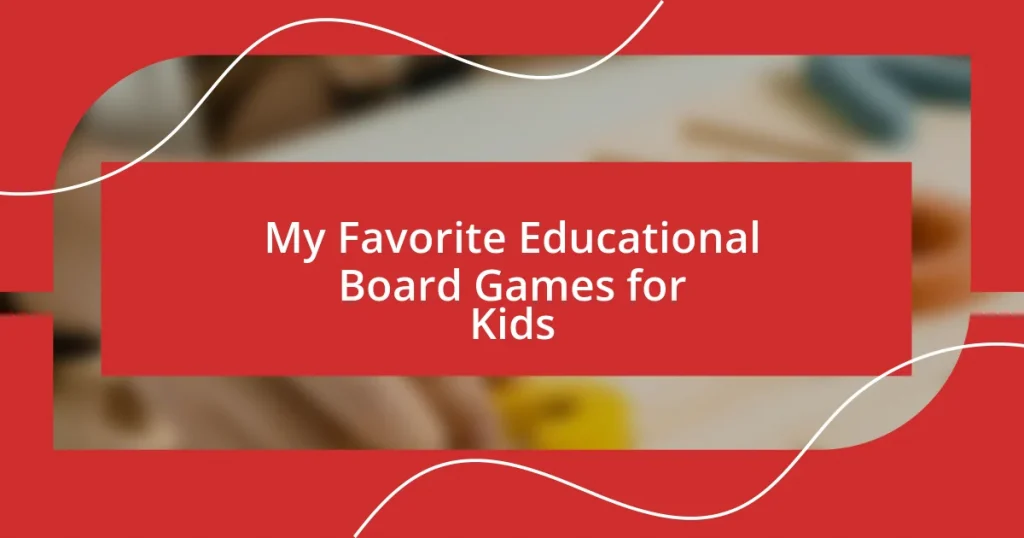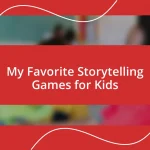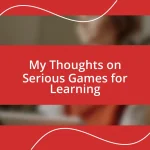Key takeaways:
- Educational board games enhance critical thinking, problem-solving, and analytical skills in children through engaging gameplay.
- These games foster social interaction, teamwork, and essential social skills like patience, empathy, and communication among players.
- Popular educational games, such as Scrabble and Rush Hour, not only support learning in various subjects but also strengthen family bonds and create memorable experiences.
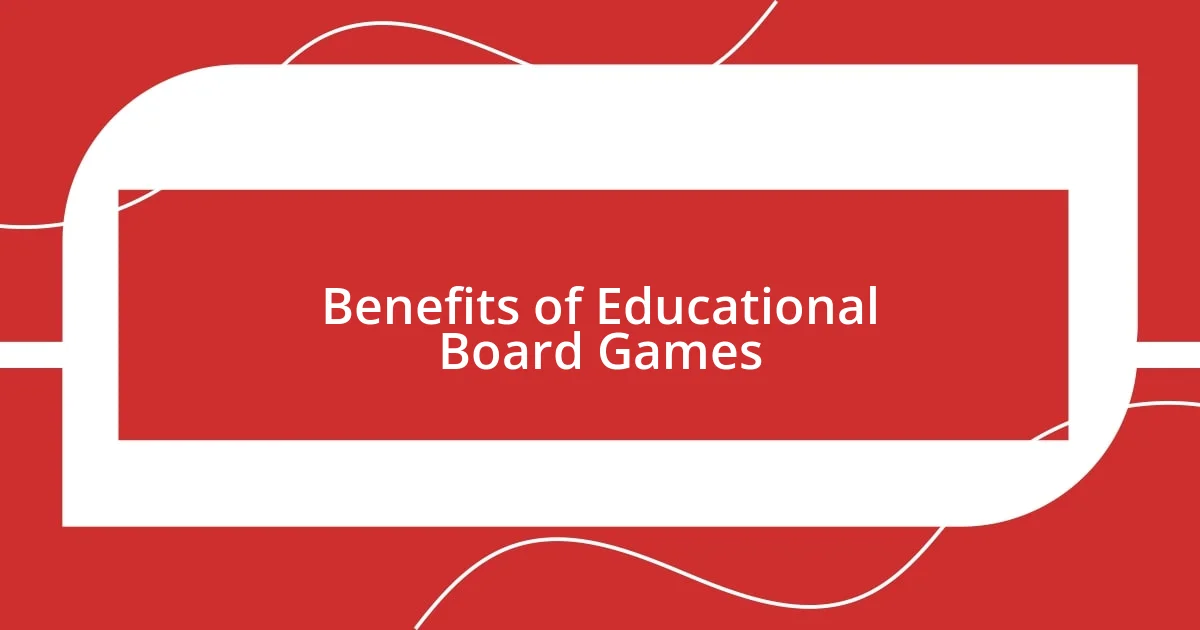
Benefits of Educational Board Games
One of the most significant benefits of educational board games is their ability to foster critical thinking skills in children. I remember playing strategy games like chess with my nephew; not only did he enjoy the challenge, but I could also see him developing his problem-solving skills in real-time. Doesn’t it make you wonder how much deeper they can connect concepts through this dynamic learning experience?
Another incredible advantage is how these games promote social interaction and teamwork. During family game nights, I’ve witnessed my kids, who usually squabble over toys, come together and strategize. It’s fascinating to observe them learning the importance of collaboration and communication while having fun. Are there any better ways to instill values like patience and respect than through laughter-filled sessions around a game board?
Finally, educational board games can significantly enhance focus and attention spans. I often find that my children are so absorbed in the gameplay that they forget about distractions like screens. Have you seen how effortlessly kids can concentrate for hours when they are genuinely engaged? It’s a potent reminder of how learning can be both enjoyable and effective.
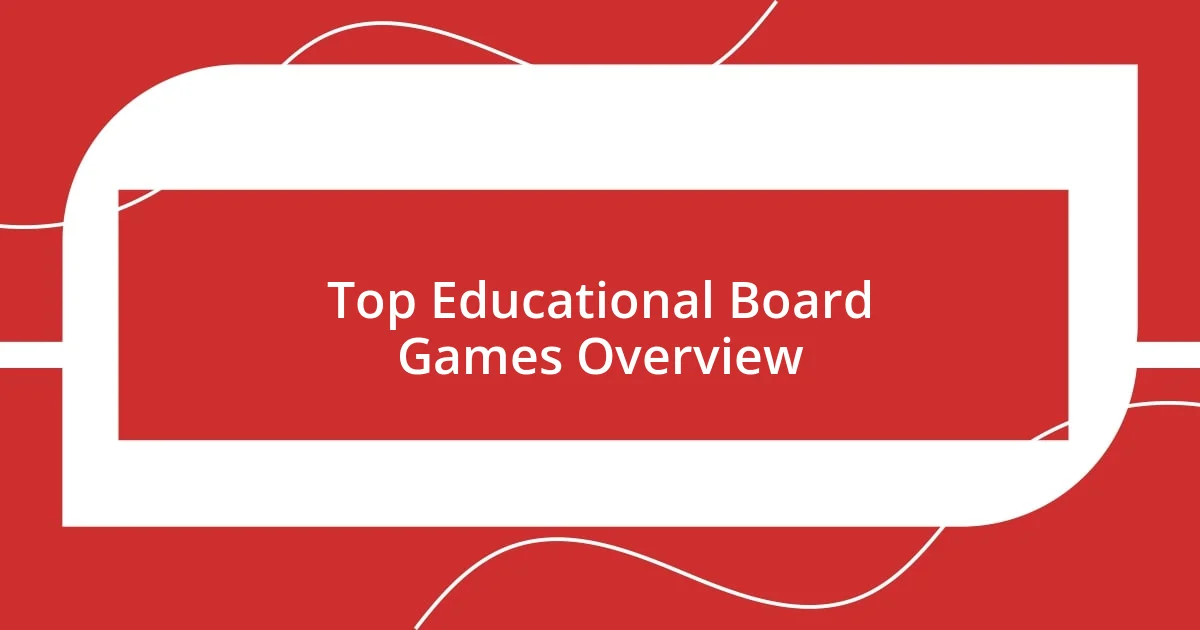
Top Educational Board Games Overview
When diving into the world of board games, there’s an impressive range of educational options that are as entertaining as they are informative. Each game uniquely supports different skills, whether it’s math, literacy, or critical thinking. I remember watching my daughter light up when she solved a tricky equation during a math-based game; her joy was contagious, turning a potentially dull lesson into an exciting challenge.
Here are some top educational board games worth exploring:
- Scrabble: Encourages vocabulary building and spelling.
- Ticket to Ride: Teaches geography and strategic planning while having fun.
- Monopoly Junior: Introduces basic money management and finance concepts.
- Blokus: Enhances spatial reasoning and strategic thinking.
- Qwirkle: Develops pattern recognition and color matching skills.
- Rush Hour: Fosters critical thinking and problem-solving through traffic puzzles.
By engaging with these games, kids not only sharpen their intellectual skills but also strengthen bonds with family and friends, creating memorable moments that learning should always strive to evoke.
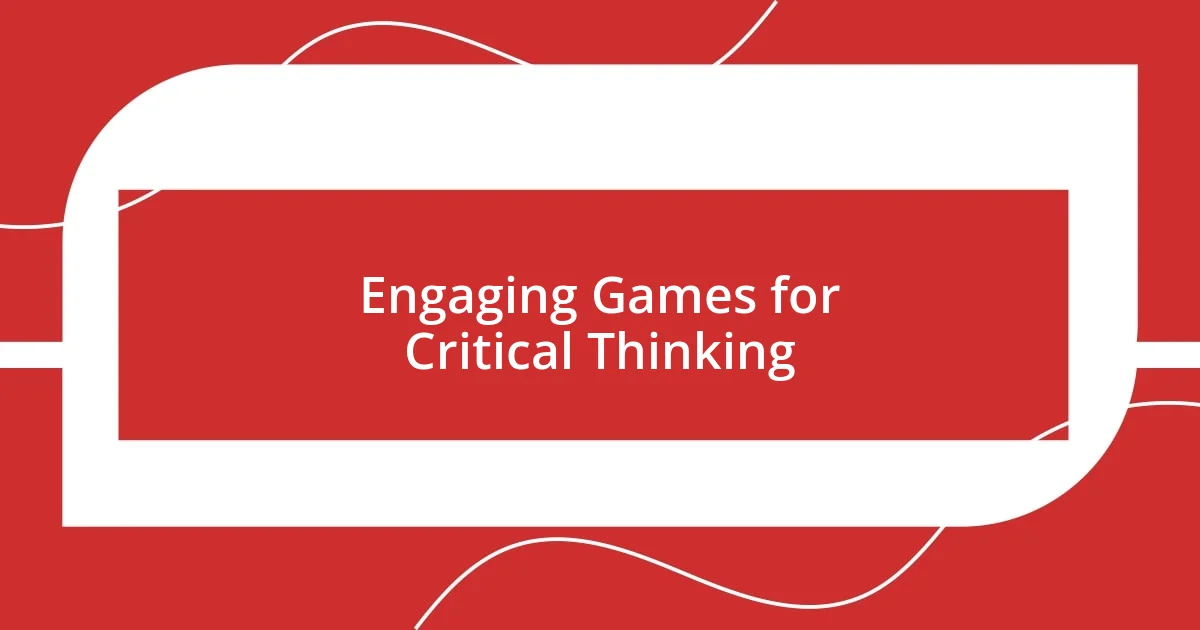
Engaging Games for Critical Thinking
Critical thinking games invite children to navigate complex problems and consider multiple solutions. I recall a session of “Blokus” where my kids were completely immersed, trying to envision their strategy while countering each other’s moves. It was fascinating to see their minds working in tandem, assessing risks and exploring possibilities. Can you feel the excitement in those moments when they outsmart each other?
The beauty of games like “Rush Hour” lies in their ability to develop analytical skills. One evening, as I played it with my son, he not only plotted his moves but also began to anticipate the effects of each action on the board. Watching him learn how cause and effect work in real-time was both rewarding and eye-opening. Doesn’t it feel great to help children discover such crucial life skills through play?
Let’s not forget the social dynamics these games create. In my experience, playing games that require teamwork, such as “Gravity Maze,” promotes discussion and negotiation. I often see my daughter rallying her friends, debating the best strategies with enthusiasm. It’s exciting to watch them learn the value of diverse perspectives and collaboration in problem-solving. What better way to equip them for real-world challenges?
| Game | Critical Thinking Skill |
|---|---|
| Blokus | Spatial reasoning and strategy |
| Rush Hour | Problem-solving and analytical thinking |
| Gravity Maze | Logic and planning skills |
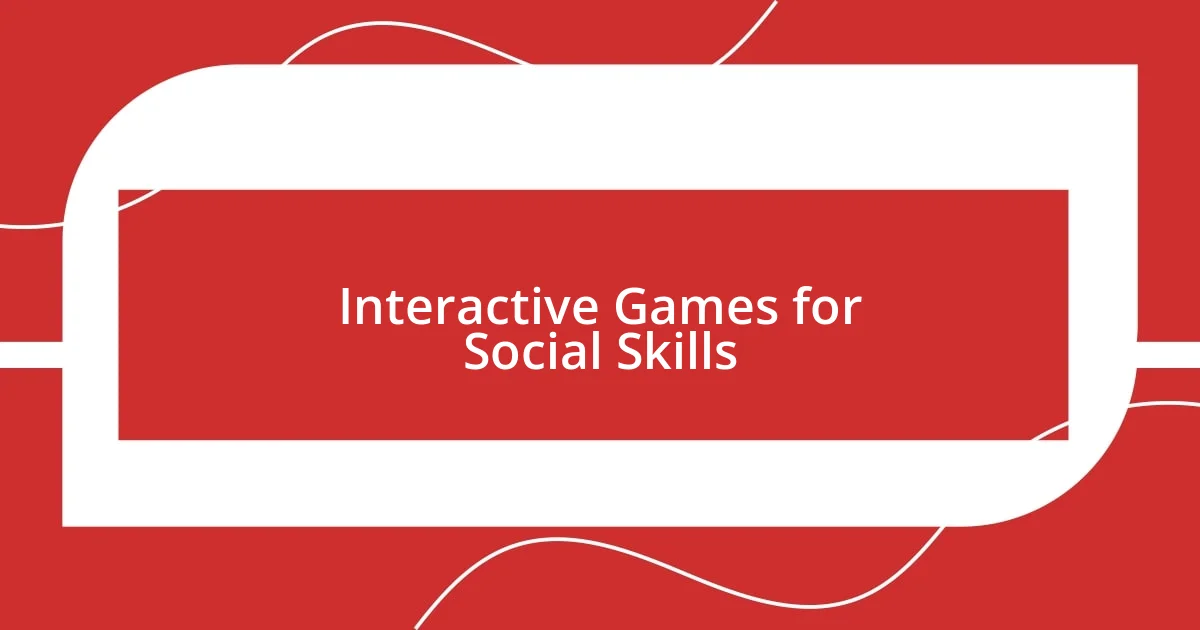
Interactive Games for Social Skills
Games that promote social skills can be a joyful way for kids to connect and communicate. I remember a family game night where we played “The Game of Life.” As my children made decisions about careers and family, their discussions flowed with excitement and laughter. I could see their understanding of empathy grow as they expressed support for each other’s choices, reinforcing the idea that every decision can impact others.
Board games often require players to interact meaningfully, teaching essential skills such as turn-taking and active listening. I’ve seen my son improve his patience during games like “Uno,” where waiting for his turn feels like an eternity. Yet, it’s during these pauses that he has learned to appreciate the anticipation and excitement of others. Have you ever noticed how those small moments can build bonds and teach respect for others in a simple, playful way?
One of the standout experiences has been playing cooperative games, like “Forbidden Island.” In our sessions, we work as a team to save treasures, and I can’t help but feel a sense of unity as we strategize and share ideas. The thrill of collective victory or the strength found in overcoming a loss together leads to valuable lessons about collaboration and support. Isn’t it remarkable how games can mirror real-life social dynamics and relationships?









